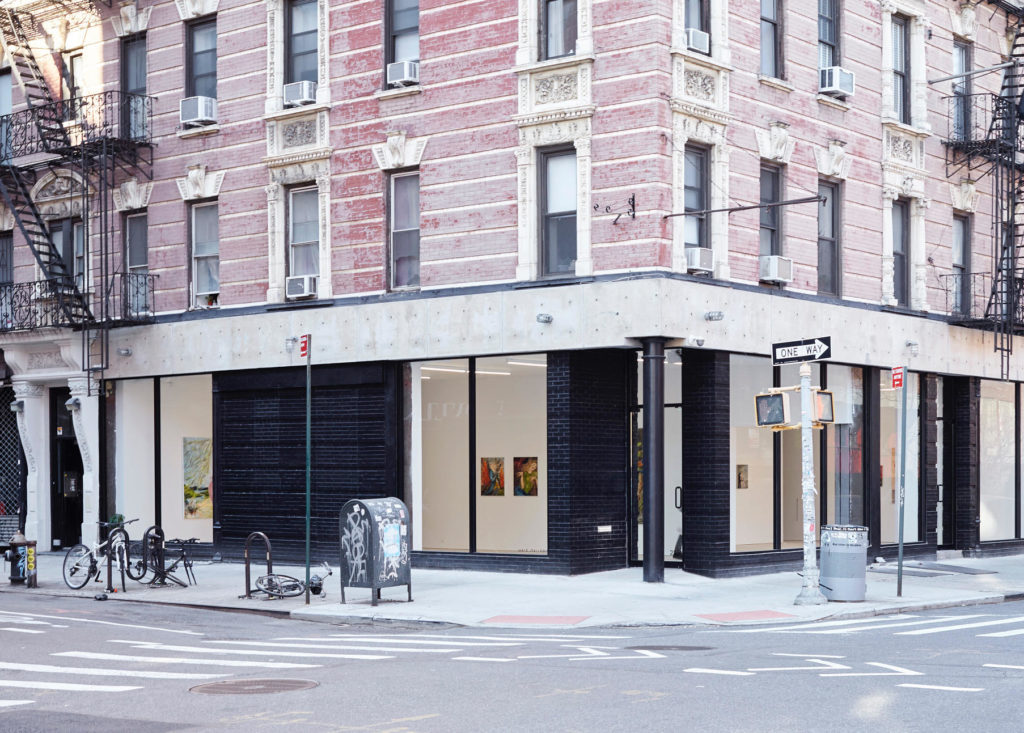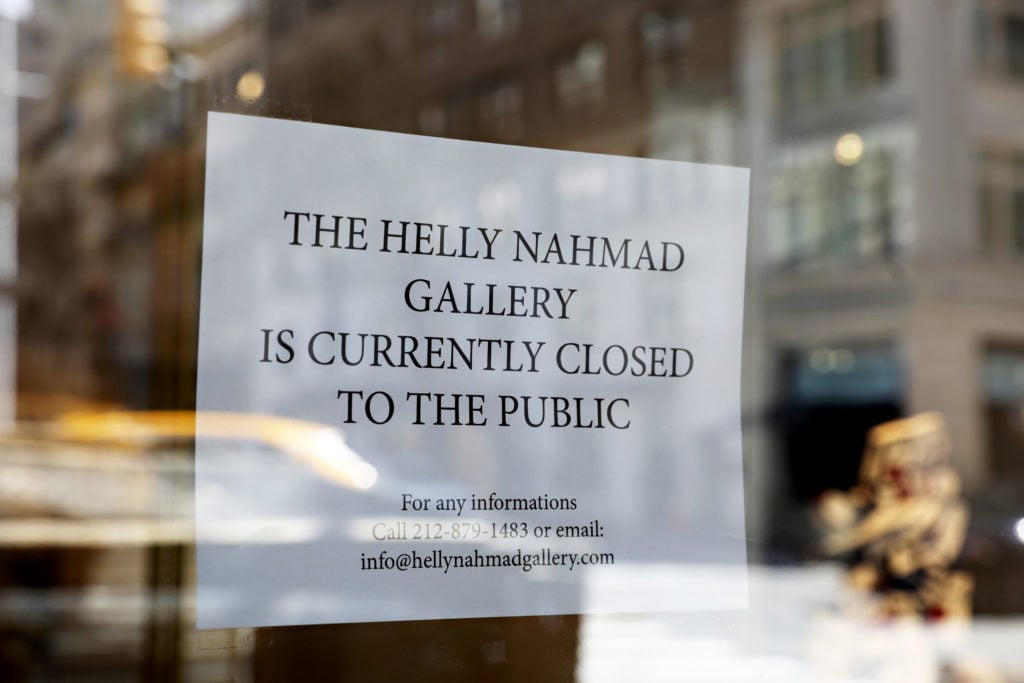Law & Politics
Can I Break My Art Gallery’s Lease Because of Coronavirus? + Other Questions About How Force Majeure Works, Answered by Lawyers
Two art lawyers offer a primer on the legal concept and how it applies to the art business now.

Two art lawyers offer a primer on the legal concept and how it applies to the art business now.

Thomas C. Danziger &
Charles Danziger

As art lawyers in the age of COVID, we have received a lot of novel questions from our clients and others. The one question that has plagued lawyers like us the most concerns the widely known but often ill-considered legal principle of “force majeure” and its application to our current crisis. In an effort to cure some common misconceptions, we thought it might be useful to treat our readers to some actual (and a few entirely made up) questions we have recently received on this very topical topic.
What is “force majeure” anyway?
It’s a legal principle that states that a party may suspend or excuse performance under a contract when extraordinary and unforeseen circumstances beyond its control—typically Acts of God such as fire, natural disasters, or severe weather conditions—make it actually or virtually impossible to complete. Other force majeure events we have seen in auction-house contracts include acts of war, terrorism, or civil insurrection.
Does COVID-19 make the list?
It depends. Force majeure is a contractual term, so if it is not specifically provided for in an agreement, a party can’t rely on it to avoid a legal obligation. That said, if your contract contains “catch-all” language stating that the list of force majeure events in your agreement is not exhaustive, the coronavirus should qualify. However, if your force majeure clause refers vaguely only to “natural disasters” or “Acts of God,” the prognosis is less clear. Even with a well drafted contract, a force majeure clause won’t help you if your compliance is merely economically difficult rather than truly impossible or impracticable. This very issue is certain to be one of the most actively litigated issues since Noah built his boat.

Michelangelo’s masterpiece David at the Galleria dell’Accademia in Florence. Photo by Franco Origlia/Getty Images.
Are there any interesting applications of force majeure in art history?
Great question! Our intrepid researcher Thomas Elliott dug up an early force majeure contingency in Michelangelo’s contract with the heirs of Pope Pius III to create 15 marble statues for the cathedral in Siena. The artist’s savvy lawyer (we presume) inserted a clause stating that the delivery period for the statues would be suspended in the event of “hindrances” such as the artist’s falling ill or the outbreak of war that prevented delivery of marble from Carrara. It seems that the clause was actually invoked when war broke out between Florence and Pisa, thereby preventing Florentine engineers—who were busy helping the military—from redirecting the Arno to allow the marble to be delivered to Siena in a timely fashion.
If this principle has been around for hundreds of years, it must be codified in US laws, right?
Wrong. Unlike in countries such as France, one cannot make a claim under force majeure in the United States if the parties to a contract haven’t specifically provided for it. Typically, US courts construe force majeure clauses narrowly and won’t “read in” this type of provision when it is not included in the contract.
That makes no sense today. Because of the pandemic, I can’t fulfill many of our gallery’s contractual obligations, including the delivery of an expensive painting to a buyer. The warehouse where the painting is housed is closed by government order.
Fortunately for you, the Uniform Commercial Code (“UCC”), which governs commercial transactions in New York and all other states, specifically addresses this type of situation. The UCC provides that a seller’s “delay in delivery or non-delivery in whole or in part” could be excused if its agreed performance “has been made impracticable by the occurrence of a contingency the non-occurrence of which was a basic assumption on which the contract was made or by compliance in good faith with any applicable foreign or domestic governmental regulation or order whether or not it later proves to be invalid.” (In other words, you don’t need to fulfill your obligations if they became impossible based on external factors nobody could have seen coming.) Since this UCC provision would apply even if you had no force majeure clause in the agreement with your buyer, it may save you here.
As for other possible cure-alls, even without a force majeure clause in your sale agreement, you could try relying on the legal doctrines of “impossibility” and “frustration of purpose.” In New York, compliance with a contract may be excused when it becomes impossible to do so (in the old law school example, when the cow you are buying dies before the sale is completed), or when a change in circumstances makes performance virtually worthless to the other party, thereby frustrating that party’s purpose in making the contract (to take the famous English example, you rent a balcony to view the King’s coronation but the coronation is cancelled).
Although New York courts apply “impossibility” and “frustration of purpose” narrowly, in our experience “frustration of purpose” can be particularly useful because it does not require that a contract be literally impossible to perform.
Got it. My Chelsea gallery lease does contain a force majeure clause. Can I break the lease due to the coronavirus crisis?
It depends on what the lease says, but generally these clauses are drafted in favor of landlords only, and don’t permit tenants to terminate the lease even in the event of a force majeure scenario. And note that New York courts typically only excuse performance based on force majeure events that are unforeseeable at the time a lease or other contract was signed, so if you rented your space after the pandemic hit New York City, your defense on that basis is probably dead in the water. An interesting legal question is when, exactly, the impact of coronavirus could have been reasonably foreseeable here. Was it when Wuhan, China first shut down, or was it at some later date? The timing of foreseeability here is another issue certain to keep litigators happily employed for years to come. And it is important to note that in some jurisdictions, a party trying to rely on a force majeure provision may also have to show that it actually attempted to perform its obligations, and that it gave adequate notice of non-performance to the other side as strictly required by the terms of the agreement.

A sign is seen in the window of Helly Nahmad Gallery on Madison Avenue on March 13, 2020 in New York City. Photo by Cindy Ord/Getty Images.
If I break the gallery lease anyway, isn’t the landlord obligated to re-rent the space to someone else and off-set my rent against the new tenant’s payments?
Unfortunately, that is not the law in New York for commercial leases. For a gallery lease like yours, the landlord has no obligation to cut his losses (in legal parlance, “mitigate damages”), and can theoretically sit back, do nothing, and require you to pay rent and perform your other obligations under the lease through the end of the term, even if he or she has managed to rent the space to someone else.
I’m broke, so good luck collecting anything from me now. Does the same principle for commercial leases hold true for my apartment lease?
The law in New York governing residential leases is entirely different, and unlike with your commercial lease, the landlord for your apartment must try to mitigate damages if you default—but that may not be so easy during this lockdown. Luckily for you, New York has enacted a temporary moratorium on both residential and commercial evictions, so at least for the time being, you can’t be thrown out of either your home or gallery space even if you don’t pay your rent.
My Jersey City gallery paid a deposit to a local art fair which was just cancelled, and the fair organizer is ducking my calls. Can he keep the deposit?
That would be ill-advised on his part. The 2006 New Jersey Appellate Court case Facto v. Pantagis involved an analogous situation in which plaintiffs Leo and Elizabeth Facto sued Pantagis Renaissance, a New Jersey banquet hall, for the costs of renting a wedding reception space and hiring a photographer, videographer, and band. A power outage occurred 45 minutes after the reception began and made hosting the function impossible. The court held that the defendant did not need to perform under the contract because the outage was an “unusual extraordinary unexpected circumstance” covered by the contract’s force majeure clause, and also determined that Pantagis’s inability to perform relieved the Falcos of any obligation to pay the agreed-upon price except for the value of the services that were received before the power outage. We believe there would be a similar result if this case were litigated in New York today.
What’s the bottom line here? Will a force majeure clause in a contract help me in light of the current pandemic?
Unless the clause is tightly worded, a force majeure provision is no panacea, but certainly provides the basis for a good legal argument. And as cases in this area hit the courts, the application of force majeure to the coronavirus crisis will become much clearer. In these difficult times, that could be just what the doctor ordered.
Charles and Thomas Danziger are partners in the New York firm Danziger, Danziger & Muro, LLP, specializing in art law. Go to danziger.com for more information. The authors thank Thomas Elliott for his research assistance. Some facts have been altered for reasons of client confidentiality. Nothing in this article is intended to provide specific legal advice.